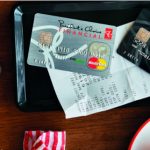
By Hyder Owainati
Special to the Financial Independence Hub
Canadians value their credit card rewards programs. According to a recent consumer survey from J.D. Power, over 87% of the country’s credit card holders are enrolled in a rewards program, while 48% of those who switched their primary credit card in the past year did so in active pursuit of better rewards.
The survey, which polled over 6,000 credit card holders, also found that of the credit cards Canadians were satisfied with the most, the President’s Choice Financial series of cards took the top spot. American Express credit cards ranked second while Canadian Tire’s credit cards rounded off the top three. The rankings were based on customer responses to questions on a spectrum of factors that included benefits, rewards, credit card terms and customer interactions.
While the study offers an insightful look into consumers’ opinions about credit cards, it’s important to note the results were categorized based on credit card companies and don’t offer a breakdown of the individual best credit cards in Canada.
Take a brand-agnostic approach to credit cards
Consumers in search of the best credit card should adopt a brand-agnostic approach and identify the individual cards that offer the rewards tailored to their lifestyle and personal financial goals. For example, a person looking to minimize their credit debt would make a more informed decision by searching for a low interest credit card rather than limiting their card options to those offered by an individual bank or credit card issuer.
Credit cards aren’t one-size-fits-all. It’s important to never lose sight of the fact that there’s a range of options out on the market – from cash back credit cards and travel rewards cards to student cards and more. While an individual credit card, company or bank may rank high on one category or list, it doesn’t necessarily mean it’s universally the best option for everyone.
Therefore, picking the right credit card should almost always start by analyzing personal spending habits and your financial standing. That’s why at Ratehub.ca, we feature built-in calculators that allow you to compare the credit cards that offer the highest value based on where and how you spend your money.
Ask yourself these questions
A smart way for consumers to identify which type of credit card is best designed to meet their needs is to ask a few self-directed questions: How do I spend my money? How often do I travel? How quickly can I earn rewards? Do I ever carry over unpaid balances from month to month? Do I have any current debts?
If you’re a frequent flyer who travels overseas at least once a year, a travel credit card may be an ideal option. On the other hand, if you’re a value-oriented shopper, searching through a list of the best cash back credit cards or no annual fee cards may be better suited to your needs. Meanwhile, if you’re a loyal customer at a specific retail chain, you may want to consider signing up for a store credit card if one is available. Overall, customers have to do their research and weigh multiple factors before applying for a new credit card.
Convenient redemptions valued highly
J.D. Power’s study does point to one clear trend: consumers are tired of complicated points programs and value the ability to redeem points frequently and flexibly.
That likely explains why store credit cards, such as PC Financial and Canadian Tire, placed high in the study: both offer straightforward rewards that can be conveniently redeemed at checkout counters during shopping runs. With that in mind, consumers should also research and compare the additional perks credit cards may offer aside from points, such as complimentary access to mobile device insurance or free travel insurance, that can be used on a more frequent basis.
 Hyder Owainati is a Content Marketing Specialist at Ratehub.ca, a website that compares credit cards in Canada as well as mortgage rates, credit cards, high-interest savings accounts, chequing accounts, and insurance with the goal to empower Canadians to search smarter and save money.
Hyder Owainati is a Content Marketing Specialist at Ratehub.ca, a website that compares credit cards in Canada as well as mortgage rates, credit cards, high-interest savings accounts, chequing accounts, and insurance with the goal to empower Canadians to search smarter and save money.

